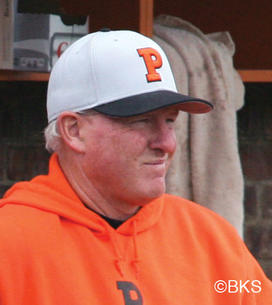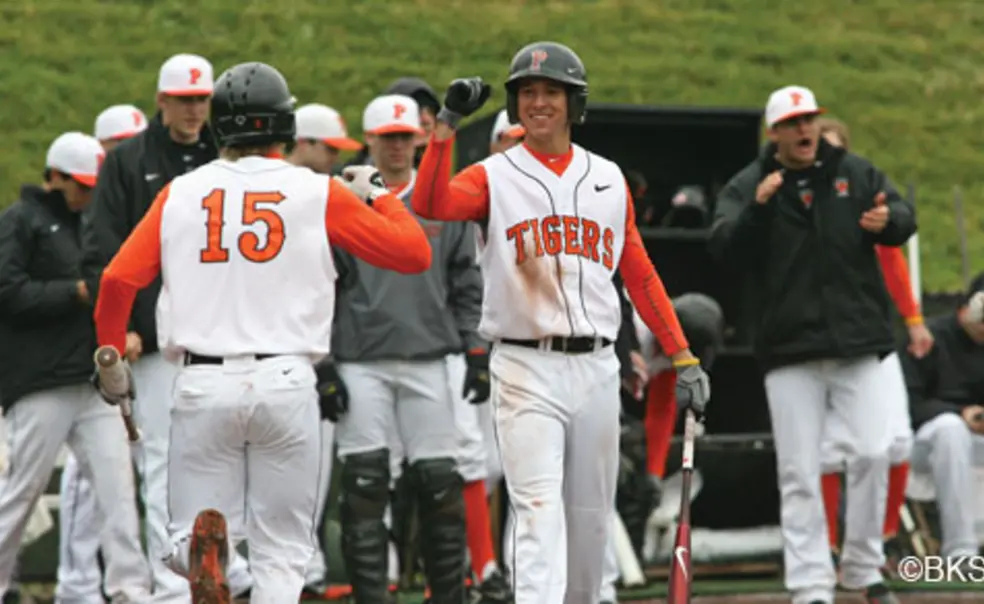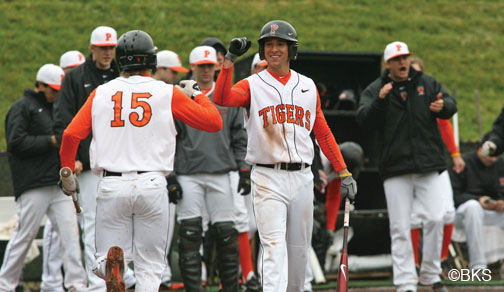Baseball changes it up with a lineup that shows versatility
Many college baseball coaches train their players to play a single position — but not Princeton head coach Scott Bradley. His lineup rarely looks the same two days in a row.
Two of the Tigers’ starting pitchers, Matt Bowman ’13 and Mike Ford ’14, play the infield when they are not on the mound. The team’s top hitter in nonconference play, Alec Keller ’14, splits his time almost evenly between second base and the outfield. Sam Mulroy ’12, one of the league’s best sluggers, plays the outfield or third base when he takes a break from catching.

The team’s unconventional strategy helped turn its fortunes around last season. After completing the 2010 season with a 12–30 record — and a dead-last finish in the Ivy League — the team defied expectations in 2011 with a 15–5 Ivy record and the conference title. This year, Princeton was 10–6 in the Ivy League as of April 23 — and 17–17 overall — but trailed Cornell in the race for the division title.
“We had a couple of years where we were a more lumbering team, but now we love versatility,” Bradley said. “We have players who are capable of playing in the middle of the diamond and the outfield.”
The flexibility of Princeton’s roster is crucial in Ivy League play. To minimize time spent away from campus, the 20-game conference schedule is compressed into five weeks, featuring back-to-back doubleheaders every Saturday and Sunday. With players equipped to play different positions, Bradley keeps his players fresh — and has more options when he needs to relieve players — through those grueling weekends.
Bradley also has a wide variety of strategies to choose from, both before and during games. After Princeton won the first game of the 2011 Ivy League Championship Series — a time when many coaches would stick with what was working — Bradley inserted three new starters into the lineup and moved three others to different positions for the second game.
Another strength is the team’s pitching rotation. As of April 23, its pitchers were fifth in the league in the crucial measure of average earned runs given up per nine innings pitched. Ford and Bowman each threw a shutout this year, and Bowman was named the Ivy League player with the best chance to play professionally by Baseball America.
With players like Bowman and Ford — who can turn in standout performances in two positions — the team has shown that flexibility pays off.













No responses yet